Algeria. The economy. A state of dependence.
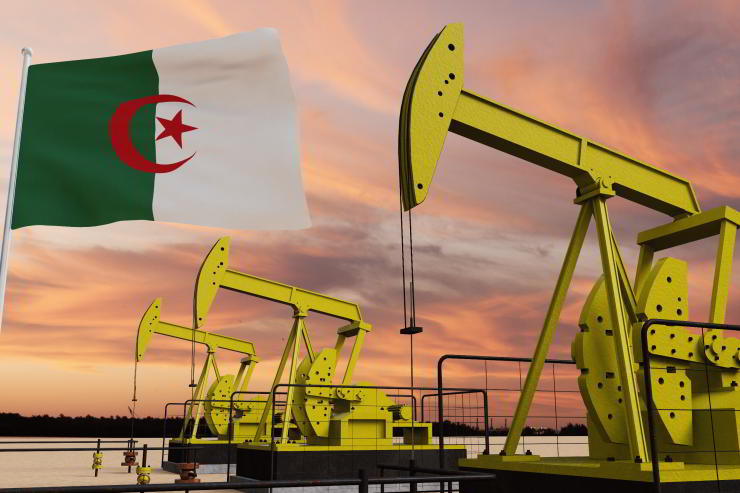
It is the fourth largest economy on the continent but it is too closely tied to the fluctuations of the gas and oil markets. It remains a fragile structure compared to population growth. The new front with Morocco is called a gas pipeline.
The economy of the largest African country occupies fourth place on the continent in terms of Gross Domestic Product (GDP) after Egypt, Nigeria and South Africa. The African giant bases its economy on hydrocarbons, starting with gas. A fifth of the GDP and 93% of the value of exports are represented by gas and oil.
The war in Ukraine and the suspension of Russian gas imports by Europe have placed the country at the centre of an intriguing geostrategic game at a global level, but also at an African level.
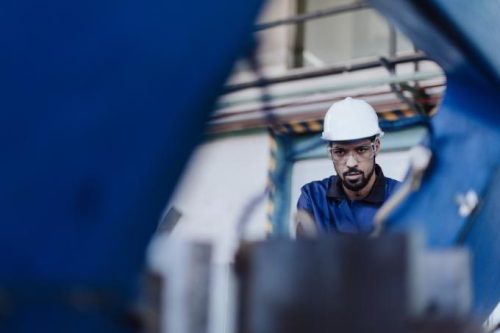
Factory worker in plant production drilling at metal machine. Algerian industry currently accounts for only 4.1% of GDP. 123rf
Yet the Algerian economy remains fragile compared to population growth, needs and internal consumption. In the 2000s, Algeria was Africa’s leading importer of foodstuffs, mainly cereals. Gas and oil, with their cyclical trend on international markets, remain a point of strength and weakness. The collapse of hydrocarbon prices starting from the end of 2022 and the increase in the value of imports have had an impact on the deficit/GDP ratio (5.2%) and have put the Algerian economy in serious difficulty. The fluctuations in the price of oil have then continued to trend downwards.
Diversifying the economy
Hence the need to diversify the economy and regain a leading role in diplomacy and especially international cooperation. Among the four African countries with the highest GDP, Algeria’s per capita income ($4,342) is second only to that of South Africa ($6,766), which also has the highest inequality index in the world.
In the Algerian case, however, the situation is less dramatic. According to the World Inequality Report, the richest 10% of Algerians take in 38% of the national income and own 10 times more than the poorest half of the population, who only have 19% of the national income.
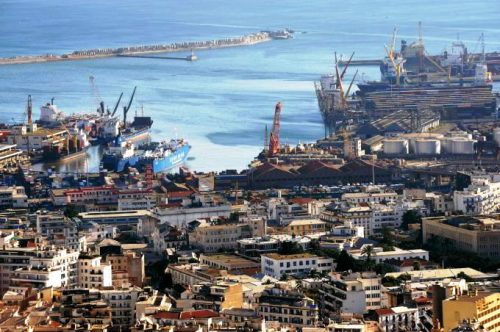
View of the Algeri Port. The government has tried to make the Algerian economy more competitive and attractive to foreign investment. Wosunan/123rf
The incomes of the poorest part of the population have been stagnant for about fifteen years at very low levels, and raise the question of social justice in the country.In addition to social inequality, there is also gender inequality, as Algeria stands out as one of the countries with the lowest female share of income from work, only 12.5%; in neighbouring Morocco it is 14%, in Nigeria 28%, in Europe it is around 38-40%.
Unemployment has also decreased after the peaks of the years around 2000 when it exceeded 30% of the working-age population. After a brief increase around 2010, the unemployment rate fell to 12.3% last year. Youth unemployment remains very high, at 31.3%. Women are also significantly discriminated against in the labour market with an unemployment rate of 21.5%. Inflation, which reached 9.3% last year, is expected to decrease by the end of this year: according to World Bank estimates up to 5%.
In this picture of light and shadow, since 2020 the government has tried to make the Algerian economy more competitive and attractive for foreign investment. A new law on hydrocarbons has been adopted and some restrictions on foreign ownership and national companies have been eliminated. The government is aiming for a growth model driven by the private sector, which was severely affected in the past by the post-Bouteflika purges (2019).
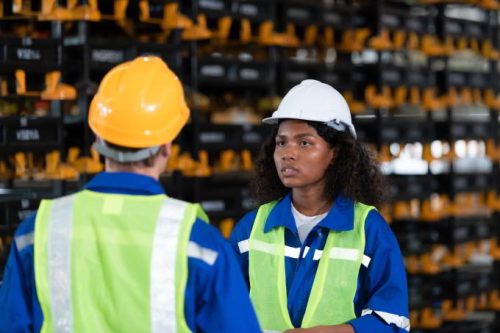
Workers in a warehouse. Women face significant discrimination in the labour market. Wosunan/123rf
Algerian industry currently accounts for only 4.1% of GDP. It is therefore not surprising that, within this ambitious plan to redesign the economic system, the government is counting on finding once again in gas the resources necessary for its policy. In the context of successive reductions in OPEC quotas, Algerian oil production fell by 3.8% in 2023 compared to the previous year, while domestic consumption of petroleum products increased. A further reduction was decided by Algiers at the beginning of this year. All this resulted in a significant reduction in oil exports, only partially offset by the increase in gas exports. It should be noted, however, that gas exports decreased through pipelines, while those of liquefied natural gas increased. Italy, Spain and France are the main customers of Algerian gas, and Europe remains an important outlet market.
The gas pipeline war
Faced with this outlook, Algeria has decided to lead the strategic battle to become a gas distribution hub to Europe and beyond. This decisive battle involves the two eternal rivals, Algeria and Morocco, competing for the gas pipeline that will bring Nigerian gas to the Mediterranean. What is at stake is not backed up by data. Nigeria is in first place for gas reserves in Africa (eighth in the world), while Algeria is in second place in Africa and tenth in the world. Algeria is the main gas producer in Africa and tenth in the world; on the continent, it precedes Egypt and Nigeria.
Two alternative gas pipelines have been competing for some time: a trans-Saharan one that brings gas from Nigeria to Algeria through Niger. The other is from Nigeria to Morocco along the coast of West Africa. The historic rivalry between Morocco and Algeria has thus revived. The first to relaunch the two projects was Algeria with the breaking of diplomatic relations with Morocco in August 2021 and the subsequent suspension of the supply of Algerian gas to its neighbour; then, in February 2022, the Russian invasion of Ukraine put the gas market at the centre of Europe’s interests. Now the two gas pipelines are in open competition, also in terms of propaganda and communication.
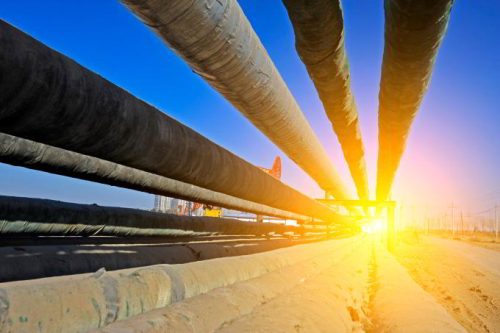
The pipe and valve oil fields. 123rf
Algeria claims the lower cost of the project (about 1,500 km shorter), the greater speed of execution, the lower cost and the lower risks since it involves only one additional transit country, Niger. Morocco, on the other hand, supports the various opportunities offered to the development of West African countries with the extension of the existing connection between Nigeria and Ghana with the possibility of exporting additional gas as this part of Africa confirms the presence of offshore gas, as in Senegal and Mauritania. However, the environmental impact, the longer times and the complexity of the work are overlooked.
Adding to the uncertainty is the fact that both countries are asserting the signing of agreements with Nigeria, which skillfully plays both tables. Announcements follow one another, as does the approaching of the final decision, without anything decisive actually happening. The coup in Niger last year has renewed doubts about the trans-Saharan route and everything suggests that the two pipelines are destined to accompany one of the longest and most enduring conflicts in Africa. (Pumpjack oil extraction and cloudy sky in the sunset with the Algeria flag.123rf)
Luciano Ardesi



